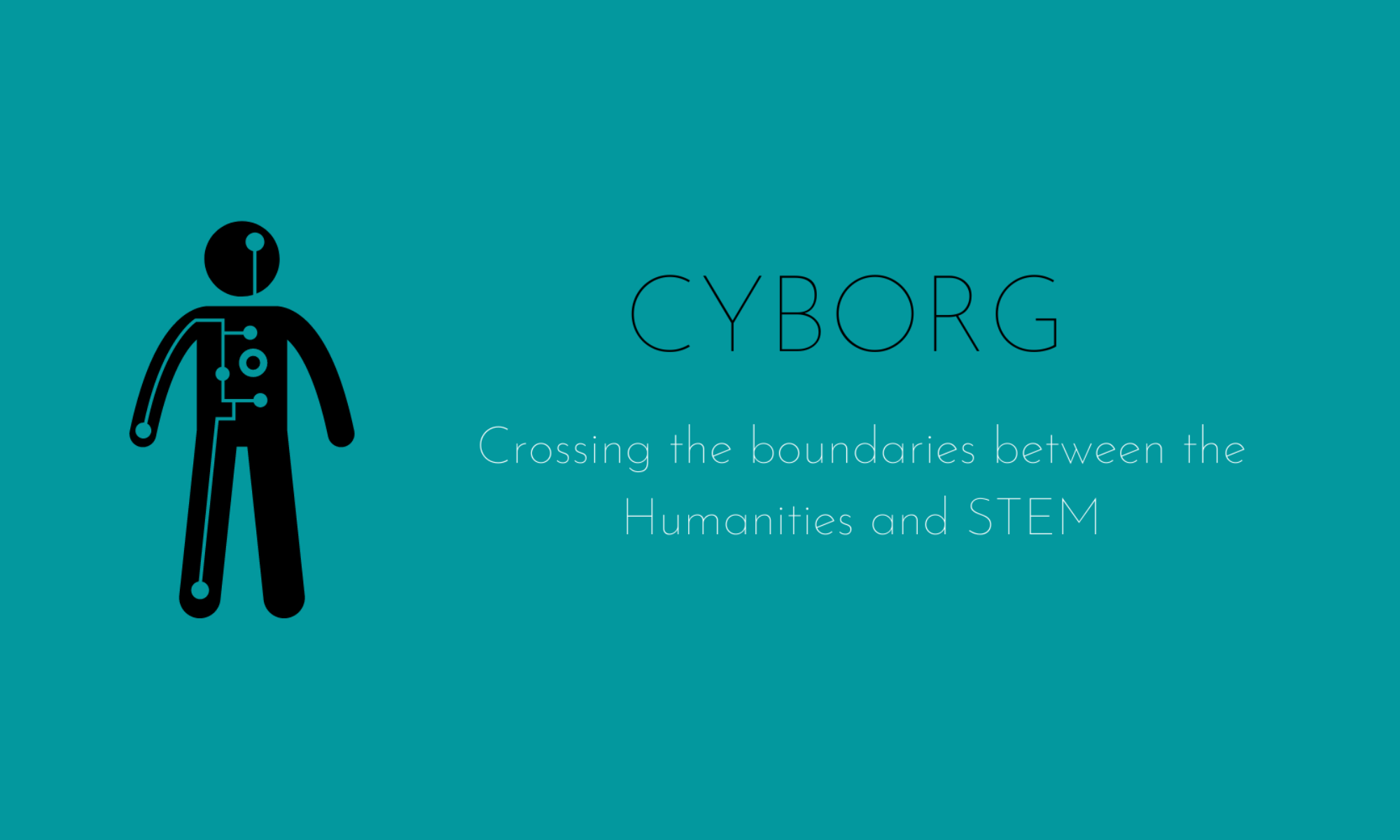Spring 2021
Cyborg Series: Katherine Hayles
In conversation with Kate Marshall
Date: Thursday, February 11th
Time: 3:00 pm – 4:30 pm
 Katherine Hayles is the James B. Duke Distinguished Professor Emerita of Literature of Duke University. She teaches and writes on the relations of literature, science and technology in the 20th and 21st centuries, and is a pioneer in the field of Posthuman Studies. Her books include: Unthought: The Power of the Cognitive Nonconscious (2017), about the cognitive nonconscious and the emergence of ‘cognitive assemblages’ composed of humans and technology; How We Think: Digital Media and Contemporary Technogenesis (2012), about the impact of digital media and research on the humanities; and How We Became Posthuman: Virtual Bodies in Cybernetics, Literature and Informatics (1999) about the disembodiment of information and the emergence of cybernetics and artificial intelligence.
Katherine Hayles is the James B. Duke Distinguished Professor Emerita of Literature of Duke University. She teaches and writes on the relations of literature, science and technology in the 20th and 21st centuries, and is a pioneer in the field of Posthuman Studies. Her books include: Unthought: The Power of the Cognitive Nonconscious (2017), about the cognitive nonconscious and the emergence of ‘cognitive assemblages’ composed of humans and technology; How We Think: Digital Media and Contemporary Technogenesis (2012), about the impact of digital media and research on the humanities; and How We Became Posthuman: Virtual Bodies in Cybernetics, Literature and Informatics (1999) about the disembodiment of information and the emergence of cybernetics and artificial intelligence.
Kate Marshall is an Associate Professor of English and Affiliate Faculty of the History and Philosophy of Science Program at the University of Notre Dame. She specializes in American fiction from the late nineteenth century through the contemporary period, and her work engages with media theory, narrative, the philosophy of science, and related modes of critical attention that illuminate how novels work as aesthetic and communicative systems and cultural agents. She is currently working on a project about nonhuman narrative sentience and its genre lives in contemporary fiction and critical theory, and the novelistic history that informs them.
Cyborg Series: Kirsten Ostherr
In conversation with Anna Geltzer
Date: Tuesday, March 2nd
Time: 1:00 pm -2:30 pm

Kirsten Ostherr is the Gladys Louise Professor and Chair of the English Department, Director of the Medical Humanities Program and Co-Founder of the Medical Futures Lab at Rice University. She is a media scholar, health researcher, and technology analyst. Her books include Medical Visions: Producing the Patient through Film, Television and Imaging Technologies (2013) and Cinematic Prophylaxis: Globalization and Contagion in the Discourse of World Health (Duke, 2005), and she is currently writing a book called Robot Pathographies: Datafication, Surveillance, and Patient Stories in the Age of Virtual Health. Prof Ostherr is also leading a multidisciplinary project called “Translational Humanities for Public Health” that will identify humanities-based (and humanities-inspired) responses to the COVID-19 pandemic, to document and help others build upon these creative efforts.
Anna Geltzer holds a Ph.D. in Science & Technology Studies from Cornell University. She is currently the Assistant Director of the Reilly Center for Science, Technology and Values at the University of Notre Dame, where she directs the Science, Technology and Values Minor, the Dual Degree Program in Engineering and Arts & Letters, and assists with the HPS and GLOBES graduate programs. She is interested in the relationship between biomedical science and its political, social and economic context.
Cyborg Series: Elaine Auyoung
In conversation with Yasmin Solomonescu
Date: Thursday, 1st April
Time: 1:00 pm – 2:30 pm EST

Elaine Auyoung is an Associate Professor of English and Affiliate Faculty of the Center for Cognitive Sciences at the University of Minnesota. She specializes in nineteenth-century British literature and culture, the global history and theory of the novel, and psychological approaches to the arts. Her first book, When Fiction Feels Real: Representation and the Reading Mind (2018), provides literary studies with a new cross-disciplinary method for examining the relationship between novelistic technique and literary experience, focusing on how realist writers from Jane Austen to Thomas Hardy bring readers into intimate relation with fictional persons and worlds. Her current book project, “Unselfing: What We Can Ask of the Arts,” accounts for how the arts––including fiction, poetry, painting, music, and dance––create uniquely powerful but fragile experiences of absorption, intimacy, belonging, even transcendence. Earlier this year, she published an article on “What We Mean by Reading” in New Literary History and an article on “The Unspoken Intimacy of Aesthetic Experience” in Poetics Today.
Yasmin Solomonecu is an Associate Professor of English and Notre Dame du Lac Collegiate Chair at the University of Notre Dame. She specializes in British Romanticism with particular interests in cognition, epistemology, persuasion and rhetoric, form and literary theory. Solomonescu is currently writing a book entitled Romantic Persuasions that considers how Romantic writers fundamentally reconceived of the theory and practice of persuasion, notably by insisting on the ethical and aesthetic value of persuasions that are at best provisional. The book makes a wider case for the importance of this distinctive sense of persuasion for literary theory and criticism today. The project has received the support of fellowships from the National Humanities Center, USA, and Chawton House, England. Related work in progress includes an essay on “Rhetoric and Gender” for the Cambridge History of Rhetoric and a co-edited collection entitled Persuasion after Rhetoric stemming from symposia co-organized in 2018 and 2019.
This event is co-hosted by the Seminar in Eighteenth and Nineteenth-Century Studies in the University of Notre Dame English Department.


